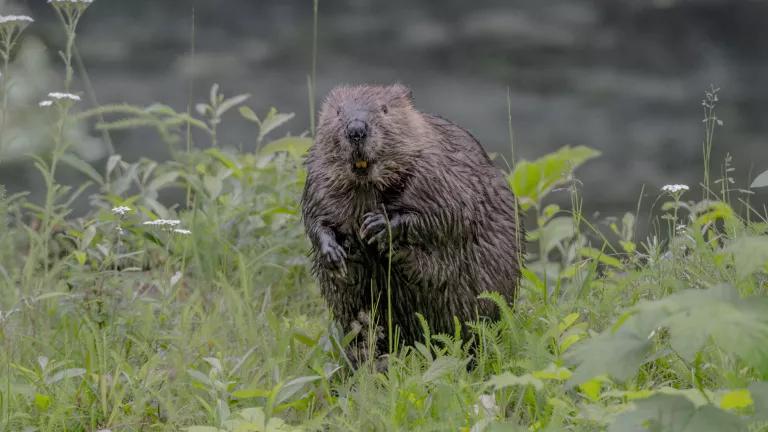Florida SLAPP Case Threatens Right to Free Speech
Florida is known for its magnificent beaches, pristine wetlands, rare plants, and iconic wildlife and wading birds. That beauty is consistently under threat from those who seek to destroy it for profit. Environmental advocates now face a new threat in this fight in the state’s courts—“SLAPP” lawsuits targeted at environmental advocates speaking out on the side of environmental protection.
SLAPP suits, or “Strategic Lawsuits Against Public Participation,” are civil lawsuits brought against private citizens, organizations, or businesses because of their communications to government and government officials on public issues. Research shows that SLAPP filers frequently seek judgments in the millions of dollars for activities that many of us engage in regularly: circulating a petition, speaking at a public hearing, writing to government officials, lobbying for legislation, reporting violations of law, filing a public interest lawsuit, peacefully demonstrating, or otherwise trying to influence government action.
SLAPP filers generally rely on legal claims like defamation and interference with contract or economic expectation, among others, to try to silence or deter people from speaking up publicly against their business interests, such as development. However, SLAPP suits often fly in the face of activities protected by the constitutional First Amendment rights of free speech and to communicate with public officials about matters of public policy.
Research shows that SLAPP suits often serve to “chill” free speech or effectively silence private citizens, organizations, and communities from voicing their concerns publicly against things like damaging environmental projects. This is one reason why NRDC and partnering organizations participate in an anti-SLAPP suit task force—Protect the Protest.
One such instance recently occurred in south Florida to a 77-year old grandmother and environmental advocate, Maggy Hurchalla, sister of the late U.S. Attorney General, Janet Reno. After Ms. Hurchalla voiced her concerns to local government officials about a mining project she thought would destroy wetlands, the mining company sued her in a Florida state court for alleged tortious interference with a contract associated with the project. Despite Ms. Hurchalla’s assertions that her actions were protected by the First Amendment and the trial judge failed to properly instruct the jury on her First Amendment rights during her trial, the mining company won a $4.3 million judgment against her. Ms. Hurchalla has since appealed.
This outrageous judgment could obviously chill environmental advocacy in Florida. Therefore, NRDC is working to protect everyone’s fundamental rights to petition their government and speak publicly concerning environmental matters by teaming up with national and Florida-based organizations, including the First Amendment Foundation, ACLU Florida, Florida League of Women Voters, Florida Press Association, Florida Society of News Editors, Florida Association of Broadcasters, University of Florida Brechner Center for Freedom of Information, and Sierra Club, among others, to file an amicus brief, or “friend of the court” brief, on behalf of Ms. Hurchalla in her appeal.
At a time when the environmental is under constant threat, we must stand together to protect the rights of individual and community voices to speak out publicly to protect the environment in Florida and other communities throughout the country. To this end, we must respond to SLAPP suits that attempt to impede this work. This is a fight to protect our constitutional rights of free speech and petition of government that we cannot afford to lose.



